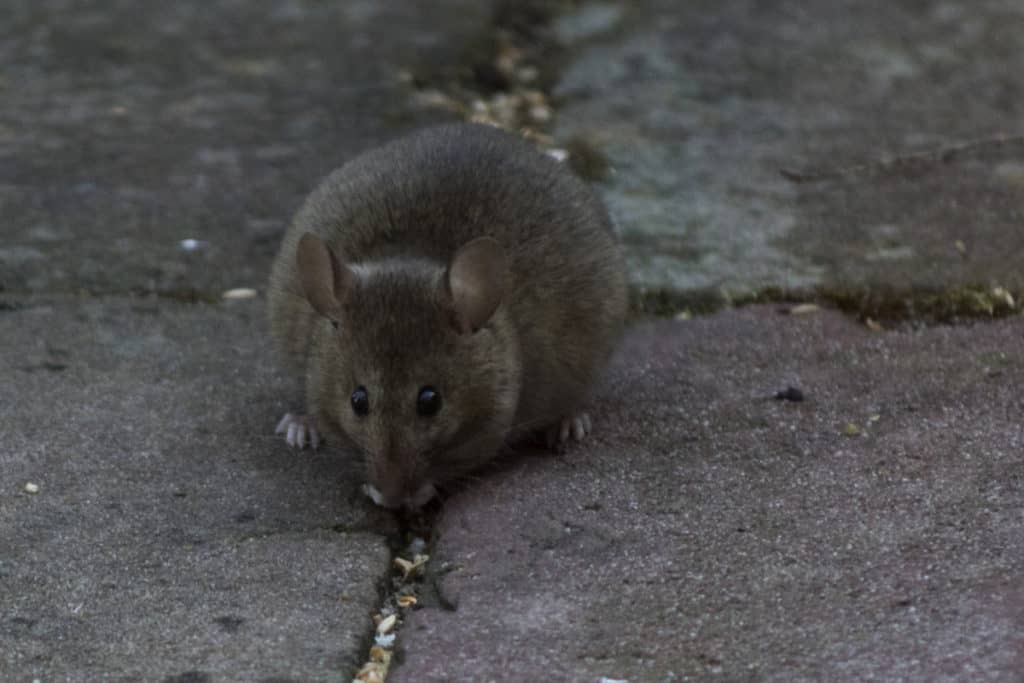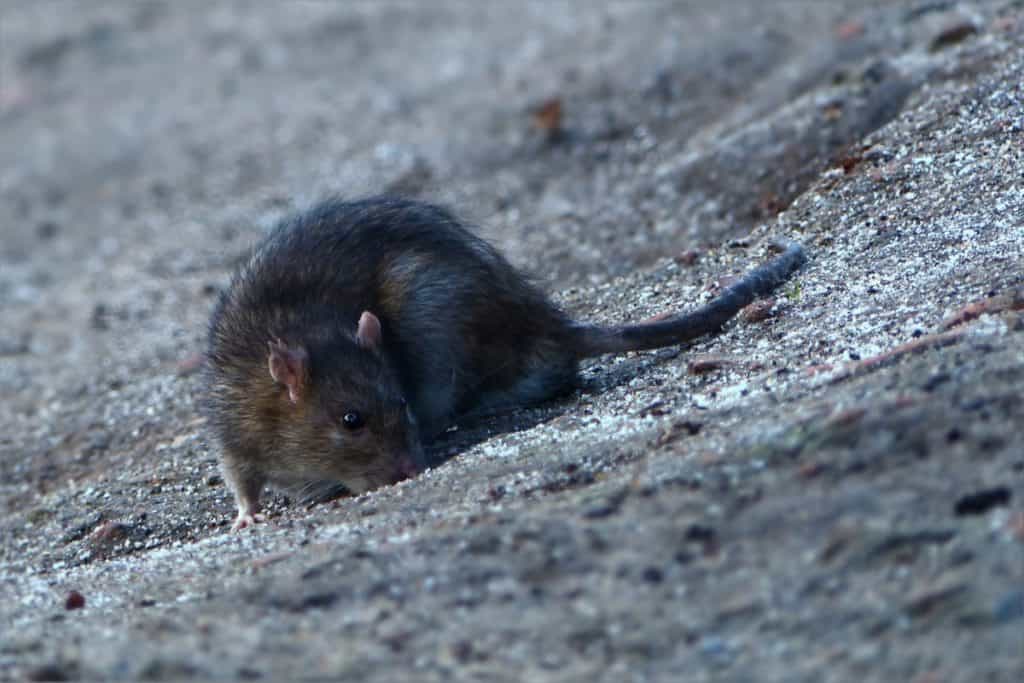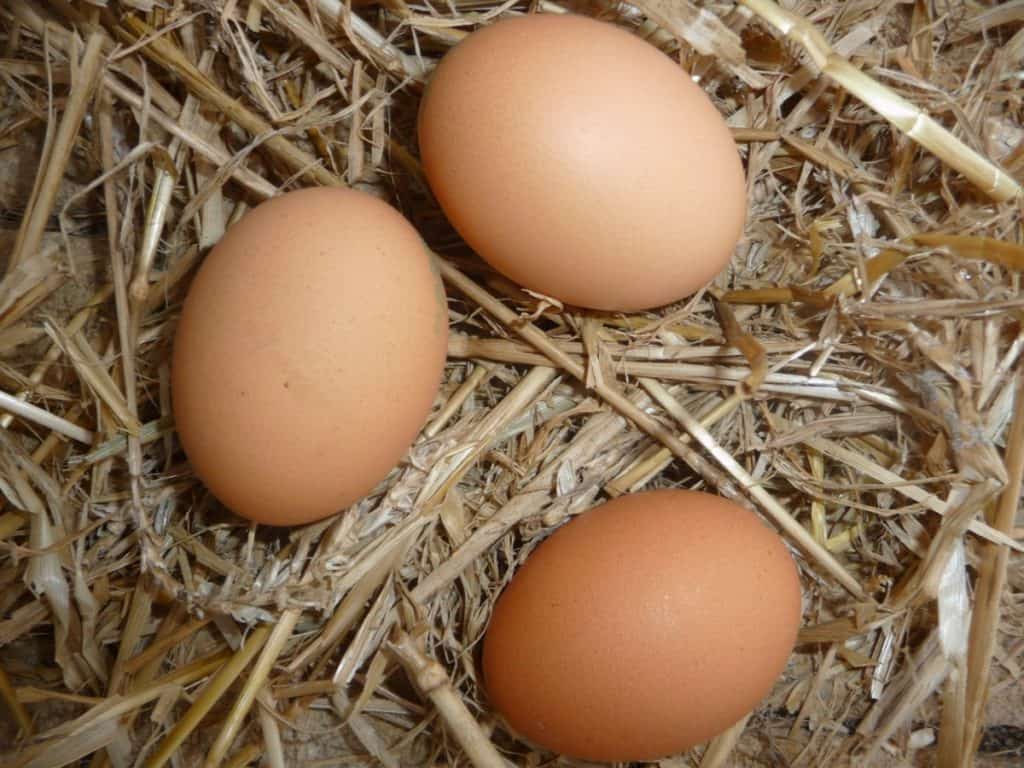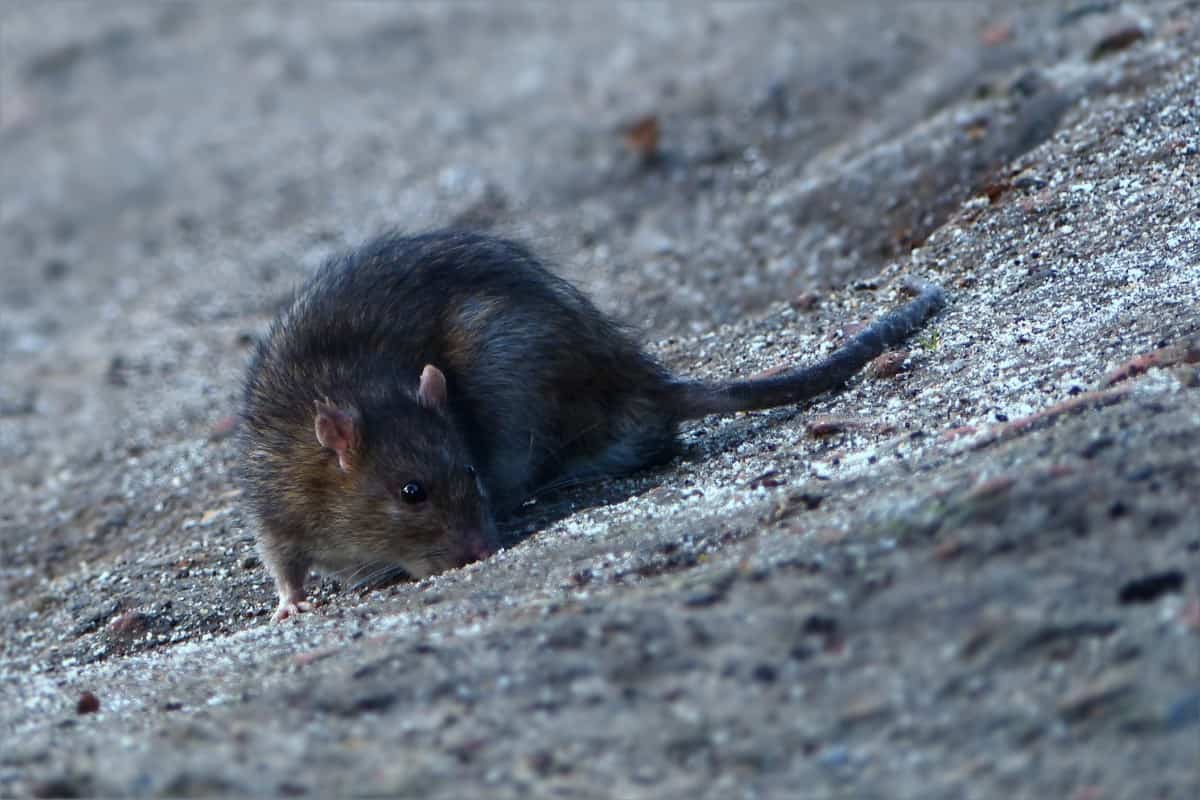I find that there is something oddly therapeutic in collecting your chicken’s eggs in the morning. The simple task gives you some much-needed quiet time before the day’s hustle begins.
Finding the eggs missing or broken on the floor will undoubtedly disrupt your morning and add another task to your busy day: finding the egg thief!
Rats will eat eggs and kill young chicks when they get the opportunity. When eggs are missing, it might be that another predator is stealing the eggs (such as foxes or birds). When the eggs are broken, and the contents are missing, the culprit is most likely rats or mice.
With missing, the first thing you have to establish is if your hens are still laying eggs or if someone is “collecting” them on your behalf. If the eggs are broken, and it is clear that it was eaten, rats or mice may have found a way into the chicken coop, and you will need to inspect to find out how and where they are getting in.
Rats prey on chicks
When you are hatching chicks, make sure you keep them secured. Not only will rats eat eggs, but they will target chicks as well. When food is running low, they will take what they get, and chicks will not be able to defend themselves from rats three times their size.

Will rats eat chicken eggs?
Rats will eat anything; they are omnivores and can survive on plant and animal food sources – including produce from the animal, such as eggs. Rodents are intelligent creatures and can spot an opportunity from a mile away.
Though you probably won’t catch them carrying the eggs away, rats can be pretty inventive when they smell food nearby. Most of the time, they will break and eat the egg immediately, rather than dragging it away.
Vermin can cause devastating damage in large numbers; they can destroy crops and chew through nearly every material known (wood, plastic, brick, etc.). According to the CDC, rats can also transmit diseases to humans and other animals.
Wild animals that have to gather their own food (not being fed by humans) will always go for the easiest and quickest way to get nutrition.
The belief that rats are attracted to chicken coops has more to do with the fact that they smell the chicken feed and investigate the possibility of a quick meal. If the opportunistic rodent can find a way into the coop, chicken feed and eggs will be the meal of the day.
If stealing and eating the eggs isn’t bad enough, rats can cause more damage than that.
They can hurt or possibly kill your chickens. If you think rats are to blame, you can look out for evidence such as rat droppings, signs of gnawing, holes in the coop floor, or trails (rats will mostly follow the same route in and out). Luckily, there are various ways to take care of the problem.
Preventing rats from eating your chicken eggs
To catch the enemy, you need to know the enemy
Rats are nocturnal; this means that they are most active when the sun goes down. They live underground and are master escape artists. Food and water attract rats, and you will always find them at garbage dumps where there is plenty to eat. They have strong teeth and can gnaw on just about anything.
Rats can climb, jump, and fall from around 50 feet and live to see another day. Their senses are remarkable; Of the five, only their eyes might let them down from time to time, but for the rest (taste, smell, touch, and hear), they can find food sources with closed eyes. While their brains might not be much bigger than a pea, they are not pea-brained. Rats are crafty, intelligent creatures that could easily out-maneuver your rat-proofing if you don’t take it seriously.

Prevention of rats in your coop
Rats can force their bodies through tiny holes and chew through coop material (including the floor from below); you need to ensure that your chickens, chicks, and eggs are safe by fixing or upgrading your coop to stop them from getting inside. Below are a few things you can do to prevent rodents from stealing your eggs.
- Make sure you have removed all eggs during the day.
- Remove feed from the chicken coop at night; rats are nocturnal and will come out at night to feed.
- Install wire mesh; you don’t want weak wire with holes big enough for them to squeeze through. Experts suggest using 10mm x 10mm galvanized wire mesh.
- Close any holes (no matter how small) and install a metal plate underneath the coop to prevent them from burrowing underneath and chewing through the floorboards.
To poison or not to poison rats?
The methods used to tackle a rat problem range from relocation or the equivalent of chemical warfare. Trapping and releasing the rodents might be an option; just be sure to take them far away, or they can just come back or move into the neighboring land.
Have a look at the RSCPA knowledge base on how to get rid of rats humanely. Some of the methods include:
- Live traps
- Snap traps
- Rodent proofing
Snap traps work well for catching rats, just stick some peanut butter on it and they will come. The downside is you will have to dispose of the rats by hand.
Poison is another route, but keep in mind that other methods will not cause the rats to suffer. You also run the risk of direct and secondary poisoning; you might end up killing cats, dogs, owls, or even your own chickens. Poisoning should be a last resort.
If you want to use poison, install a bait box where the rats cannot escape once they have ingested the poison, this will prevent any possible dangers to the other animals.
Alternatively, you can contact AnimalKind accredited companies that focus on using alternative methods to solve your rodent problem.

Will chickens eat eggs? (Are there other animals to look out for?)
It may sound a little shocking, but chickens may even be your “rat” problem. Chickens may start snacking away on eggs if their calcium levels are low or due to a chance discovery.
These clucking birds are omnivores and may develop a taste for eggs. Ensure you feed your chickens a proper diet that caters to all their nutritional needs. Quickly remove any broken eggs as soon as you spot them.
According to Discover Wildlife, animals that steal chicken eggs are:
- Mustelids – pine martens, stoats, and weasels
- Foxes
- Rats
- Squirrels
- Cuckoos
- Corvids – crows, magpies, jackdaws, rooks, ravens, and jays
- Hedgehogs
Snakes, by following rodents, may slither across your coop by chance; if they can get in, they can also be counted among the egg thieves. Snakes are a danger to your chickens and chicks as well, the same with foxes. Check out discoverwildife.com more about the signs of each egg predator.
Will chickens kill mice and rats?
Chickens can kill mice and rats; since they are omnivores, they might even snack on the fallen rodent. There are quite a few YouTube videos where chickens catch and eat mice and rats.
Your chickens might be able to ward off the pesky rodents during the day, but since chickens sleep at night and rats are awake at night, they might slip through undetected.
Another sign that rats have found a way into the coop will be evident with missing toes or chicks. Rats will gnaw on chicken toes while sleeping, and your chicks are in even more danger from rats. Take special care to keep your chicks safe.
Conclusion
To keep your chickens, chicks, and eggs safe from the cunning rats and other predators, you need to make some adjustments in and around the coop. Keep the chicken feed secure and make sure there is no way for rats to get into the structure.
Use humane ways to get rid of the problem and be careful with secondary poisoning as you could harm your flock. All of this can prevent any future loss due to egg-eating rats.

